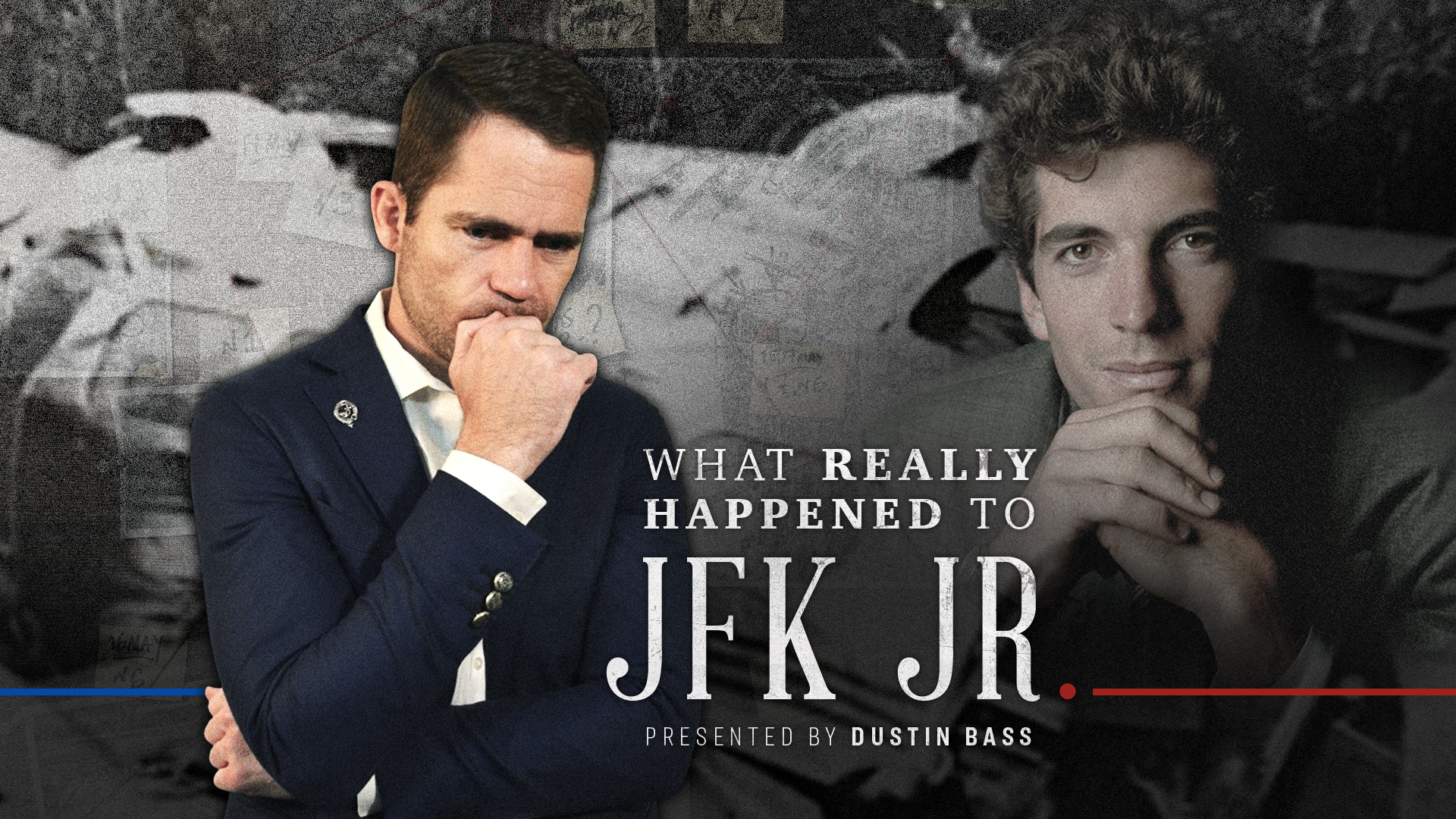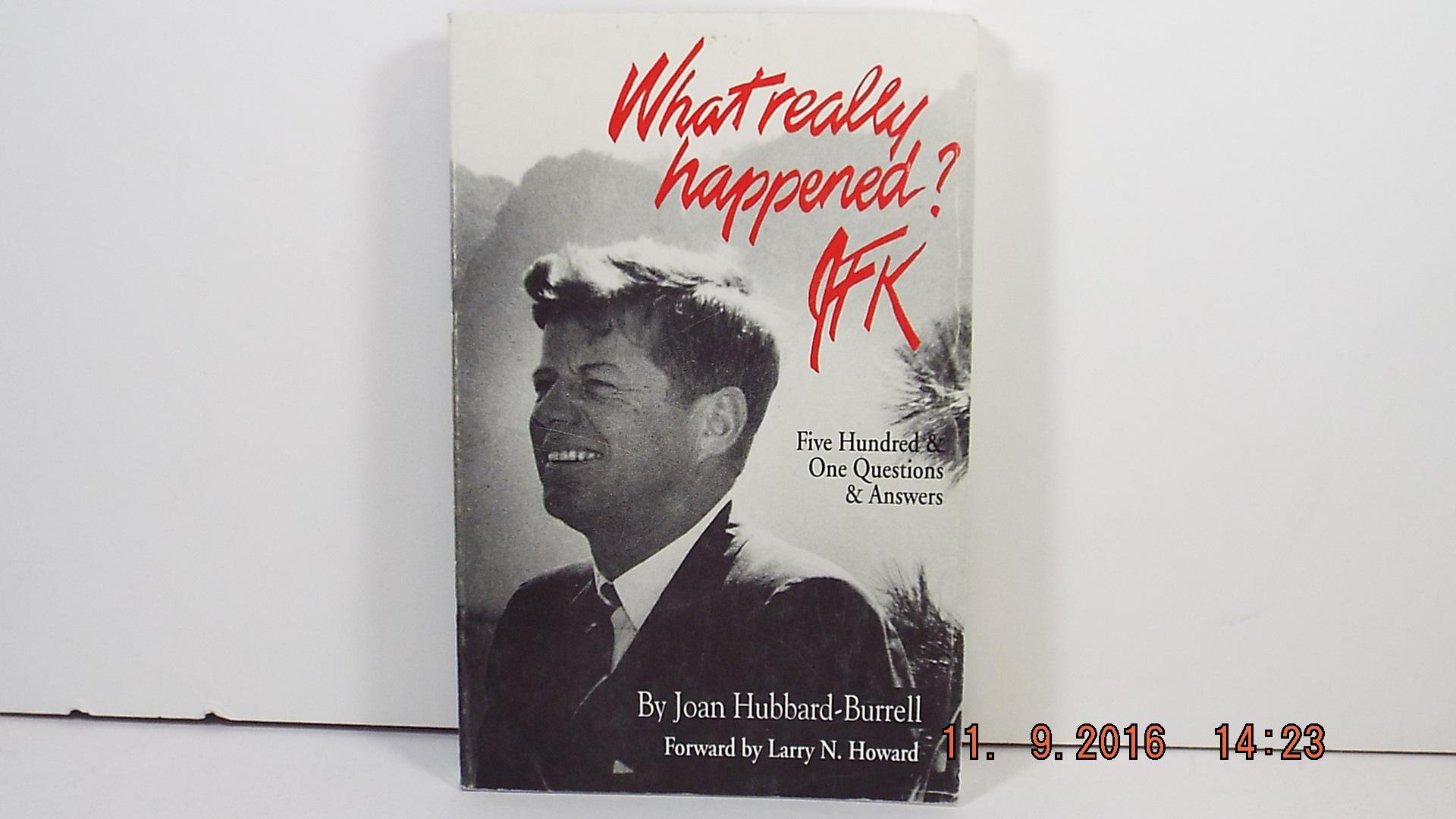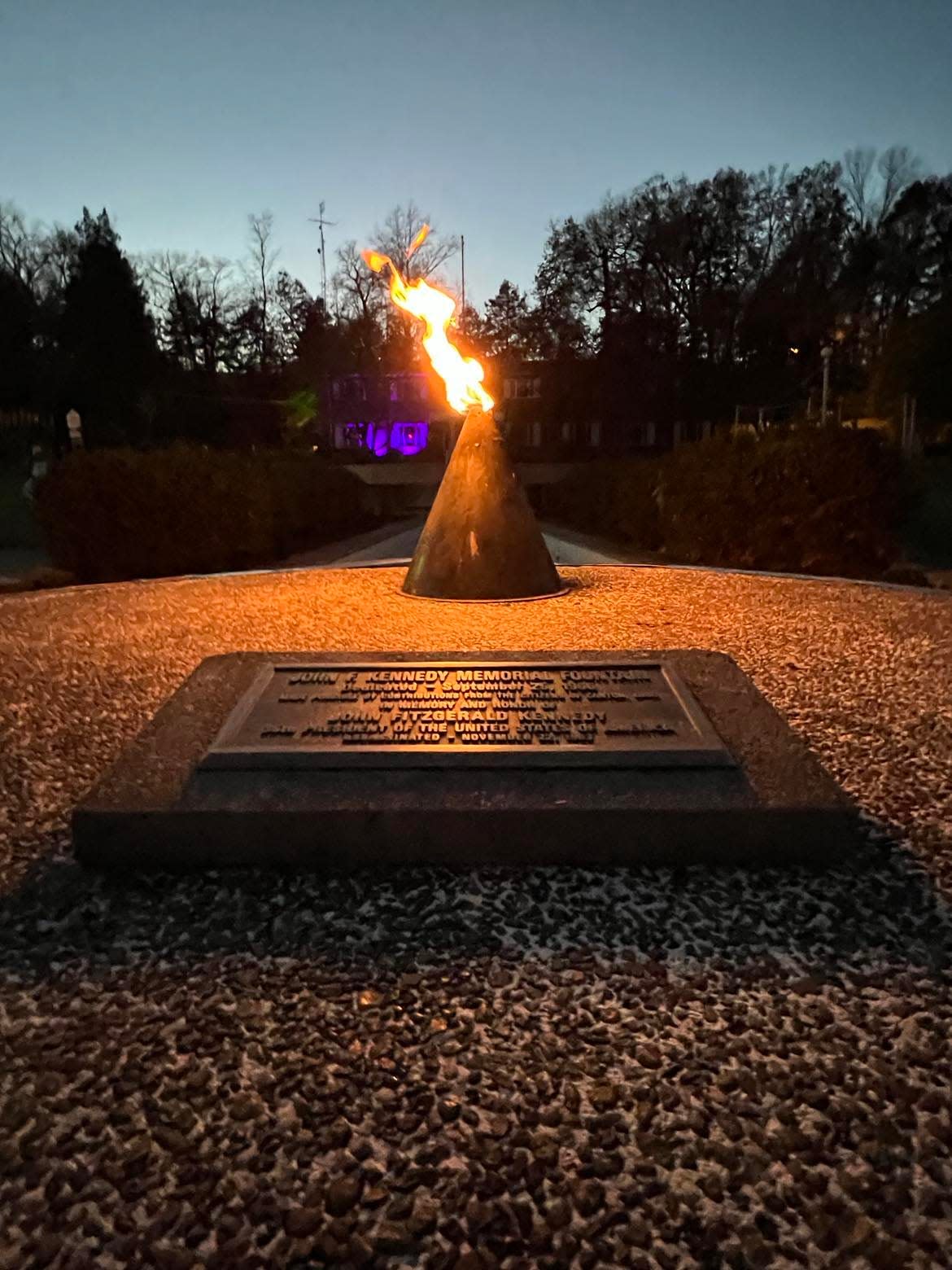What Happened In Jfk Today
# The Lingering Echoes: How We Discuss "What Happened in JFK Today" **The assassination of President John F. Kennedy remains one of the most pivotal and debated events in modern history. Decades later, the question of "what happened in JFK today" isn't about a new incident, but rather the ongoing conversations, interpretations, and the profound impact of that fateful day on our collective memory and understanding of the past. To truly grasp the nuances of these discussions, a precise command of the English language is not just helpful, but essential.** **Understanding historical narratives, especially those as complex and emotionally charged as the events surrounding JFK, demands clarity in communication. From the choice of verb tenses to the subtle implications of prepositions, every linguistic decision shapes how we perceive and articulate the past. This article delves into the linguistic tools that enable us to effectively engage with history, using the enduring legacy of John F. Kennedy as a compelling backdrop.** ## Table of Contents * [The Enduring Quest: "What Happened in JFK Today"](#the-enduring-quest-what-happened-in-jfk-today) * [Mastering the Past: The Simple Truths of Tense](#mastering-the-past-the-simple-truths-of-tense) * [When to Use the Past Simple Tense](#when-to-use-the-past-simple-tense) * [The Present Perfect: Connecting Past to Present](#the-present-perfect-connecting-past-to-present) * [The Precision of Language: Why Every Word Matters](#the-precision-of-language-why-every-word-matters) * [Navigating Nuance: "Just" and Its Subtle Power](#navigating-nuance-just-and-its-subtle-power) * [The Art of Placement: Prepositions in Historical Context](#the-art-of-placement-prepositions-in-historical-context) * [Learning English as an Adult: Overcoming Communication Hurdles](#learning-english-as-an-adult-overcoming-communication-hurdles) * [Insights from Language Experts: Candice Benjamin and Yaren](#insights-from-language-experts-candice-benjamin-and-yaren) * [A Trip Down Memory Lane: Idioms and Collective Remembrance](#a-trip-down-memory-lane-idioms-and-collective-remembrance) * [Clarifying Historical Records: An Analogy to Communication](#clarifying-historical-records-an-analogy-to-communication) * [Conclusion: The Ongoing Dialogue of History](#conclusion-the-ongoing-dialogue-of-history) ## The Enduring Quest: "What Happened in JFK Today" When we ask "what happened in JFK today," we're not typically referring to a breaking news event at an airport, nor are we expecting a new revelation about the 1963 assassination to emerge instantaneously. Instead, the phrase often serves as a prompt for reflection, a call to revisit the historical record, or an inquiry into the ongoing impact and interpretations of John F. Kennedy's life and death. The very act of discussing "what happened in JFK today" underscores how past events continue to resonate, shape our present understanding, and fuel future inquiry. This continuous engagement with history highlights the critical role of language in preserving, analyzing, and transmitting knowledge across generations. Without clear, precise, and contextually appropriate language, the lessons of the past risk becoming muddled, misinterpreted, or lost entirely. The way we frame historical events, the tenses we choose, and the vocabulary we employ directly influence how these events are understood and remembered. ## Mastering the Past: The Simple Truths of Tense To discuss "what happened in JFK today" in a historical context, a solid grasp of past tenses is paramount. The past simple tense is the bedrock of historical narration. **It is one of the most commonly used tenses in English as it indicates something that has already happened.** When recounting specific events that occurred at a definite point in time, the past simple provides the necessary clarity and directness. ### When to Use the Past Simple Tense **When to use the past simple tense to talk about events that happened in** the past, the rule is straightforward: use it for completed actions at a specific time. For instance, "President Kennedy *was* assassinated on November 22, 1963," or "Lee Harvey Oswald *shot* JFK." These are discrete actions, finished and dated. This tense is crucial for establishing a chronological framework for historical events, allowing us to pinpoint exactly when something occurred. Without this foundational tense, historical accounts would lack the precision required for accurate understanding. ### The Present Perfect: Connecting Past to Present While the past simple deals with completed actions, the present perfect tense offers a different perspective, one that often applies when discussing "what happened in JFK today" in a broader sense. **In English, the verb you use to describe something that happened in the past differs from the one you use for something happening in the present.** The present perfect is particularly useful because **it suggests that the action happened at some indefinite time in the past and has a connection to the present moment.** Consider the statement: "Historians *have debated* the Warren Commission's findings for decades." Here, the debate started in the past and continues to the present. Or, "The legacy of JFK *has influenced* American politics profoundly." The influence began in the past and is still felt today. This tense allows us to bridge the gap between historical events and their contemporary relevance, emphasizing the enduring impact of "what happened in JFK today" on our current world. **So, if someone did something earlier today and you're feeling happy about it**, you might use the present perfect to express a recent impact. Similarly, the ongoing fascination with JFK's story is a present-day feeling rooted in a past event. ## The Precision of Language: Why Every Word Matters In any discussion about "what happened in JFK today," particularly when delving into historical analysis or conspiracy theories, the precision of language becomes absolutely critical. **Proper verb usage is crucial for effective communication in English.** The difference between "JFK *was killed*" and "JFK *was murdered*" carries significant weight, implying different legal and moral judgments. Similarly, distinguishing between "Oswald *was believed* to be the assassin" and "Oswald *was proven* to be the assassin" highlights varying degrees of certainty and evidence. **Even if you’re taking online English lessons, using the right word can be tricky, especially when choosing** between synonyms or verbs with subtle semantic differences. This challenge is amplified when discussing sensitive historical topics where every word choice can influence interpretation, evoke strong emotions, or even perpetuate misinformation. The meticulous selection of vocabulary ensures that historical accounts are not only accurate but also convey the intended meaning without ambiguity. This dedication to linguistic precision is a cornerstone of E-E-A-T (Expertise, Authoritativeness, Trustworthiness) in historical discourse. ## Navigating Nuance: "Just" and Its Subtle Power The word "just" might seem simple, but its placement and context can significantly alter the temporal perception of an event, which is vital when discussing "what happened in JFK today" in a contemporary context. **While these two words are very similar and often used interchangeably, there are subtle differences.** The provided data specifically notes: **"Just is often used to discuss something that happened a short time ago ('it...)."** For instance, if a new document related to the JFK assassination were released this morning, one might say, "The archives *just released* new files on the JFK case." This implies immediacy, an event that occurred very recently. However, if we are discussing the ongoing impact of the assassination, using "just" incorrectly could lead to confusion. "JFK *just died* in 1963" would be grammatically awkward and misleading, as it implies a recent event. Understanding these nuances helps maintain temporal accuracy in our discussions, ensuring that our language precisely reflects the timeframe of the events we are describing, whether they occurred moments ago or decades in the past. ## The Art of Placement: Prepositions in Historical Context Prepositions like "in," "at," and "on" are small words that carry immense meaning, especially when detailing "what happened in JFK today" by specifying locations and times. **Two of the most common contexts in which in, at, and on are used involve identifying where someone or something is and when something happened.** This means they can be both indicators of place and time. For example, "The assassination occurred *in* Dallas, Texas," specifies a general location. "The motorcade was *on* Elm Street," indicates a specific street or surface. "The shots were fired *at* Dealey Plaza," points to a precise spot. Similarly, for time: "The event took place *in* November," for a month; "It happened *on* November 22, 1963," for a specific date; and "The time was around 12:30 PM *at* the moment of impact," for a precise time. Misusing these prepositions can lead to geographical or chronological inaccuracies, which are unacceptable in historical reporting. The precise use of prepositions is a hallmark of authoritative and trustworthy historical accounts. ## Learning English as an Adult: Overcoming Communication Hurdles For many, articulating complex historical narratives like "what happened in JFK today" can be challenging, especially if English is not their native language or if they are still developing their proficiency. **Learning English as an adult isn’t easy.** The intricacies of verb tenses, idiomatic expressions, and subtle word choices can be daunting. **If you’ve ever been told to just talk more and still felt stuck, you're not the problem.** Often, the issue lies not in a lack of effort, but in the need for targeted instruction that addresses specific linguistic hurdles. When discussing a topic as sensitive and historically significant as JFK's assassination, the stakes for clear communication are high. Misunderstandings can arise from imprecise language, leading to misinterpretations of facts or even perpetuation of myths. This underscores the importance of structured learning and dedicated practice, ensuring that individuals can confidently and accurately convey their understanding of historical events. The ability to articulate complex ideas clearly contributes directly to the trustworthiness of one's discourse, especially on YMYL (Your Money or Your Life) topics like historical accuracy which can influence public perception and policy. ## Insights from Language Experts: Candice Benjamin and Yaren The pursuit of linguistic precision in discussing topics like "what happened in JFK today" is often guided by experienced educators and communicators. For instance, **Candice Benjamin is an English teacher with more than 6 years of online teaching experience.** Her work exemplifies the dedication required to empower learners with the tools for effective communication. **Candice has taught English to children and adults alike of various levels, ensuring** that they can navigate the complexities of the language, from basic sentence structure to nuanced historical discourse. Her expertise highlights that mastering English, particularly for complex topics, is a journey that benefits immensely from skilled guidance. Similarly, **Yaren is a writer and a former language teacher.** Her background provides a unique perspective on the intersection of language education and effective communication. **She studied BA Modern Languages in Swansea University.** This academic foundation in multiple languages equips her with a deep understanding of linguistic structures and their impact on meaning. **After graduating, she completed internships in Belgium and her native** country, further broadening her cross-cultural communication skills. The combined experience of Candice and Yaren underscores the importance of expert guidance in achieving the clarity and precision necessary to discuss intricate historical events like "what happened in JFK today" with authority and trustworthiness. Their insights affirm that language learning is not merely about memorizing rules, but about developing the ability to convey complex ideas accurately and effectively. ## A Trip Down Memory Lane: Idioms and Collective Remembrance Beyond grammar rules, idiomatic expressions also play a role in how we discuss and remember historical events, including "what happened in JFK today." **This idiom in English refers to an occasion when people remember or talk about things that happened in the past.** The phrase "a trip down memory lane" perfectly encapsulates the recurring public interest in the JFK assassination. **Every Christmas is a trip down memory lane for** many families, as they revisit traditions and stories. In a similar vein, anniversaries of the JFK assassination, new documentaries, or the release of previously classified documents often prompt a collective "trip down memory lane" for the nation. People revisit old theories, share personal recollections, and reflect on the profound impact of the event. This idiom highlights the emotional and communal aspect of historical remembrance, showing how language helps us not just to state facts, but also to evoke shared experiences and feelings about the past. It underscores that "what happened in JFK today" is as much about collective memory as it is about factual recall. ## Clarifying Historical Records: An Analogy to Communication The ongoing efforts to clarify and understand "what happened in JFK today" through historical research can be likened to the process of clarifying communication in a learning environment. Just as historians might re-examine evidence or seek new perspectives, language educators often need to adjust their approach to ensure understanding. Consider the scenario: **Kindly contact your student in order to clarify the problem and agree on a new date and time for the lesson.** This emphasizes the need for direct communication and mutual agreement to resolve issues. In the context of historical inquiry, this translates to historians contacting primary sources, cross-referencing accounts, and engaging in scholarly debate to clarify ambiguities in the historical record. When new evidence emerges, our understanding of past events might need to be "rescheduled" or revised. **After that, reschedule the lesson on the student’s behalf by selecting student asked to** – this implies a necessary adjustment based on new information or a clearer understanding. Similarly, historical narratives are not static; they are continually refined as new data becomes available or as new analytical frameworks are applied. Furthermore, the principle that **Tutors have a right to receive payments for lessons when students miss the class without prior notice,Occasionally, based on the circumstances, tutors might cancel or reschedule lessons** can be seen as an analogy for the "cost" of historical omissions or inaccuracies. Just as a missed lesson has consequences, a failure to accurately record or interpret history can lead to a distorted public understanding, which carries its own societal "cost." The flexibility to "reschedule" or revisit historical interpretations based on new evidence is crucial for maintaining the integrity of historical discourse and ensuring that our understanding of "what happened in JFK today" remains as accurate and comprehensive as possible. This ongoing process of clarification and adjustment is fundamental to building authoritative and trustworthy historical narratives. ## Conclusion: The Ongoing Dialogue of History The question of "what happened in JFK today" is not a simple query about a single event, but rather an invitation to engage with a complex historical narrative that continues to unfold in our collective consciousness. From the precise application of past tenses to the subtle implications of prepositions and idiomatic expressions, the English language provides the indispensable tools for navigating this intricate landscape. As we've explored, mastering linguistic nuances is crucial for accurate historical discourse, drawing on the expertise of seasoned educators like Candice Benjamin and Yaren. Their insights underscore that effective communication, especially on topics as significant as the JFK assassination, requires dedicated effort and a commitment to clarity. The ongoing "trip down memory lane" that accompanies discussions of JFK reminds us that history is not just a collection of facts, but a living narrative shaped by how we choose to remember and articulate it. Ultimately, understanding "what happened in JFK today" means participating in an ongoing dialogue, one that demands linguistic precision, critical thinking, and a continuous pursuit of truth. By honing our English language skills, we empower ourselves to contribute meaningfully to this vital conversation, ensuring that the echoes of the past resonate clearly and informatively for generations to come. What are your thoughts on how language shapes our understanding of history? Share your insights in the comments below, and explore other articles on our site that delve into the power of effective communication in understanding complex topics.

What Really Happened to JFK Jr. | Documentary | EpochTV

What Really Happened? JFK: Five Hundred One Questions and Answers by

Remembering JFK: Canton's eternal flame still burns for slain president